Get-ChildItem is for retrieving all or a subset of items from a container. Note that it outputs an object with Name and Value properties (substituting Path as another lengthy environment variable value)...
PS> gci env:Path
Name Value
---- -----
Path C:\Windows\system32;C:\Windows;C:\Windows\System32\Wbem;C:\Windows\System32\WindowsPowerShell\v1.0\;C:\WINDO...
Get-Item yields the same result...
PS> gi env:Path
Name Value
---- -----
Path C:\Windows\system32;C:\Windows;C:\Windows\System32\Wbem;C:\Windows\System32\WindowsPowerShell\v1.0\;C:\WINDO...
Either way, the object retrieved is a DictionaryEntry...
PS> gi env:Path | Get-Member
TypeName: System.Collections.DictionaryEntry
Name MemberType Definition
---- ---------- ----------
Name AliasProperty Name = Key
Equals Method bool Equals(System.Object obj)
GetHashCode Method int GetHashCode()
GetType Method type GetType()
ToString Method string ToString()
PSDrive NoteProperty PSDriveInfo PSDrive=Env
PSIsContainer NoteProperty bool PSIsContainer=False
PSPath NoteProperty string PSPath=Microsoft.PowerShell.Core\Environment::path
PSProvider NoteProperty ProviderInfo PSProvider=Microsoft.PowerShell.Core\Environment
Key Property System.Object Key {get;set;}
Value Property System.Object Value {get;set;}
...and when you pipe that to ConvertTo-Json it will include all kinds of undesirable properties from that class.
In short, don't use ConvertTo-Json for this. Since you know the exact item you want, just retrieve it directly using variable syntax...
PS> $env:Path
C:\Windows\system32;C:\Windows;C:\Windows\System32\Wbem;C:\Windows\System32\WindowsPowerShell\v1.0\;...
Equivalent code using the .NET API would be...
PS> [Environment]::GetEnvironmentVariable('Path')
C:\Windows\system32;C:\Windows;C:\Windows\System32\Wbem;C:\Windows\System32\WindowsPowerShell\v1.0\;...
If you really wanted to use a Get-*Item cmdlet you'd just need to specify that it's the Value property you want using property syntax...
PS> (gi env:Path).Value
C:\Windows\system32;C:\Windows;C:\Windows\System32\Wbem;C:\Windows\System32\WindowsPowerShell\v1.0\;...
...or Select-Object...
PS> gi env:Path | Select-Object -ExpandProperty 'Value'
C:\Windows\system32;C:\Windows;C:\Windows\System32\Wbem;C:\Windows\System32\WindowsPowerShell\v1.0\;...
All of the above commands will output only a [String] containing the entirety of that environment variable value. I inserted trailing ellipses since showing my entire Path value is not useful here; in practice, those commands will output the entire environment variable with no truncation.
